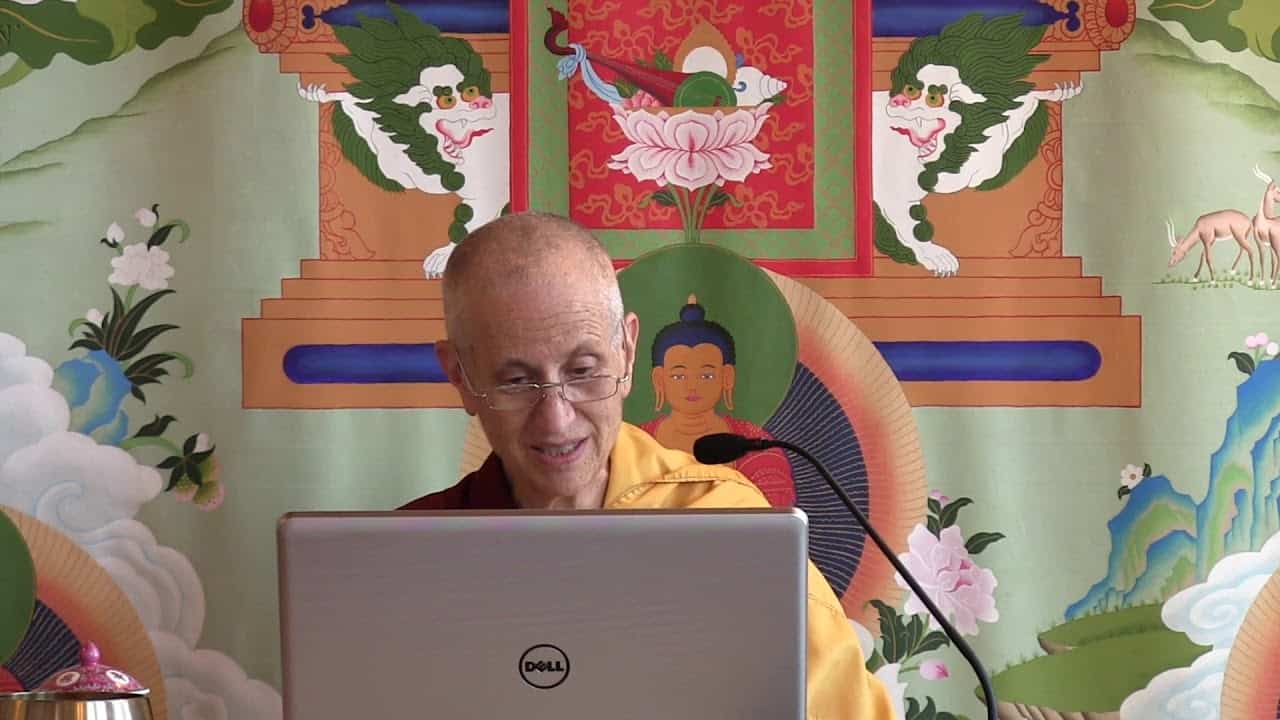The first nonvirtue of speech: Lying (part 1)
The first of a series of teachings on the four nonvirtues of speech recorded at the Luminary Temple in Taiwan.
I thought to begin by talking about the four nonvirtues of speech, because how we use our speech is something that’s very, very important. It influences a lot of people. I think about it this way: you know, George Bush started a war in Iraq because he suspected there to be weapons of mass destruction in Iraq. As it turned out there were no weapons of mass destruction in Iraq. However, all of us have our own weapon of mass destruction. Right here. Our mouth. So we may not be able to blow up other countries, but we certainly have the ability to destroy peoples’ happiness with how we use our mouth.
The Buddha very kindly pointed out four particular ways that we should avoid speaking, because they not only hurt others, but they also create negative karma for ourselves. So whenever we are harming others, we are also harming ourselves by creating destructive karma that will bring us unhappiness. The four that the Buddha pointed out were lying, divisive speech, harsh speech, and idle talk.
The first one, lying. None of us likes to think of ourselves as liars. We may exaggerate a little bit, but we don’t consider exaggeration lying. Actually, it fits the definition of lying, because lying is saying something that isn’t is, or something that is, isn’t. So it’s deceiving others through our speech, and through exaggeration we definitely deceive others. Some exaggeration is done rather innocently and mindlessly. I remember a friend of mine telling me that once her mother was telling a story, and her mother was exaggerating, so she pointed that out to her mom and said, “Mom, don’t exaggerate.” And her mom went, “Shh, the story’s better if I tell it this way.” She wanted to tell a good story even though it wasn’t completely accurate. This is definitely lying.
But those are lighter kinds of lies: they may not damage others or ourselves so much. But the biggest lie is lying about our spiritual attainments, saying that we have attainments that we don’t have, and the reason that this one is so negative is because it destroys other peoples’ faith in the Dharma. If we lie and we claim to be bodhisattvas, or to have realized samadhi or something, and someone then maybe gives us honor or give us offerings, but what we said was all made up, out of egotistical concerns, then when that person finds out that what we said wasn’t true, and they gave an offering or gave respect that wasn’t earned or deserved, then that person can get really hurt, and feel like, “I can’t trust any Buddhist, so I can’t trust the Buddha’s teaching.” That’s not very reliable logic on the part of the person—you don’t throw away the teaching just because a practitioner doesn’t practice well, but you can certainly understand how somebody could think that, and it’s very very damaging to do things that turn people away from the Dharma.
There are other kinds of big lies that the Buddha didn’t specify as the big one about lying about our spiritual attainments, but really breed a lot of problems. So what people often lie about is [when] they do something that they don’t feel very good about, and they don’t want anybody to know about it.
So you have one negative action [that] somebody did, and then to protect their reputation, and protect themselves from criticism and disappointment from others, then they lie about this deed that they did. So you have double trouble–because you have the original negative action and then they lie about it.
Venerable Thubten Chodron
Venerable Chodron emphasizes the practical application of Buddha’s teachings in our daily lives and is especially skilled at explaining them in ways easily understood and practiced by Westerners. She is well known for her warm, humorous, and lucid teachings. She was ordained as a Buddhist nun in 1977 by Kyabje Ling Rinpoche in Dharamsala, India, and in 1986 she received bhikshuni (full) ordination in Taiwan. Read her full bio.


